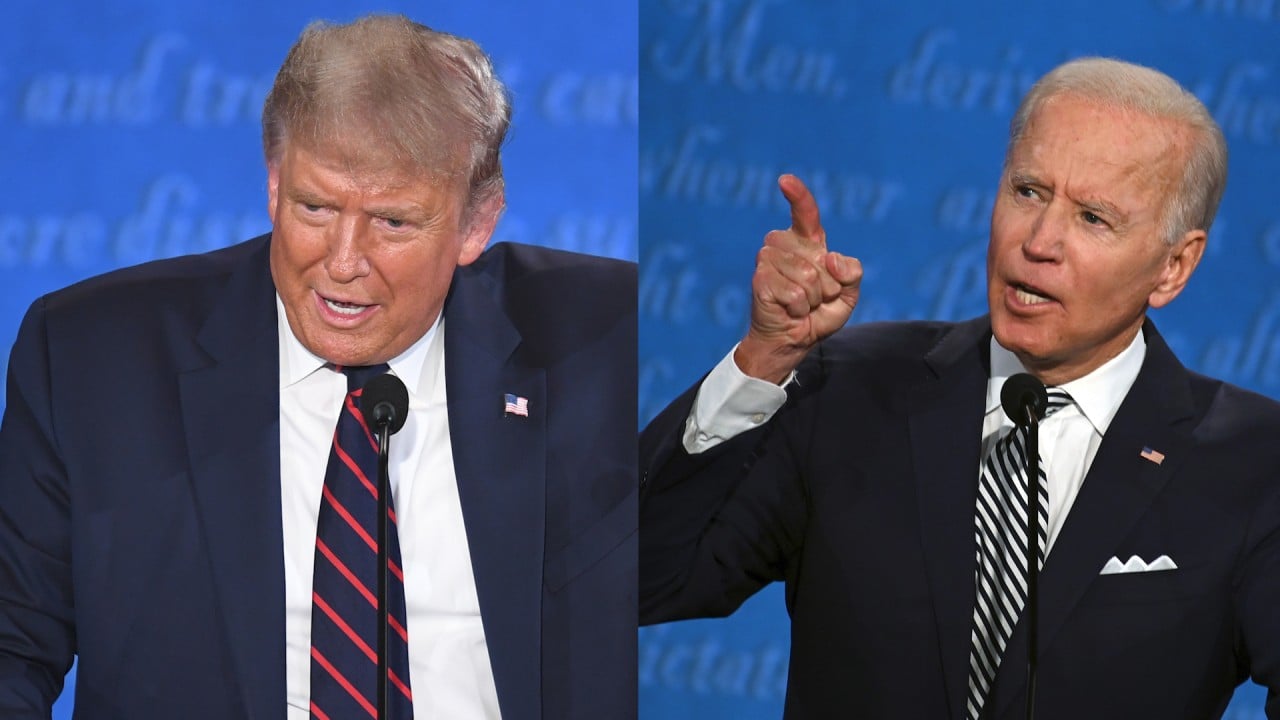
Chinese ambassador’s US TV interview a chance to reflect on how to deal with interrupters
- The Face the Nation programme during which host Margaret Brennan repeatedly interrupted Chinese ambassador Qin Gang sparked debate and highlighted cultural differences
- To survive and succeed in the West, Asians must be aware of the value systems there and adopt smart strategies in the face of chronic interruptions
“What should I do to make him stop interrupting me?” This question was in my head when a senior professor interrupted me several times during my job interview at UCLA in 1985 as a graduate student. This professor claimed my research work had already been done by him 10 years earlier, and he kept badgering me when I tried to explain why this was not the case. Since then, I have gradually learned how to respond to interruptions.
Was Brennan rude to Qin? Was her interviewing style racially or politically motivated? During my discussions with my friends in Hong Kong, mainland China and the United States, two different perspectives emerged.
Many Hongkongers told me they were often interrupted by their Western colleagues at work. From the perspective of Hongkongers and mainland Chinese, our Chinese values teach us to respect seniors and officials.
Therefore, Chinese viewers might naturally find Brennan rude. Indeed, some Chinese social media users complained that the American host was disrespectful at best and hostile towards China at worst.
However, most Americans and Westerners in general believe in treating everyone the same regardless of their status. Therefore, it is no surprise that most of my American friends did not think Brennan was rude.
Brennan often interrupts her guests on her show when their comments are not in line with the views of the American majority. This is a smart move because popularity rating is a key measure of television shows. Brennan’s interruptions can be construed by viewers as her being on their side.
Putting the perceived rudeness and the political narrative aside, did Brennan treat Qin differently because he is Chinese? I’m not sure, but I know that women and Asians are often interrupted in meetings in the US.
Speaking up is a power trip, and interrupting someone can be seen as a way to stand out. In an individualistic society such as the US, non-assertiveness can be perceived as being meek and reticence associated with being secretive.
Given these cultural differences, how should Asians behave in the US without violating their Asian values? How should Chinese employees cope with their Western colleagues at work in Hong Kong or mainland China? I would like to make four suggestions.
First, scan the interruptions and classify them into two types. For collaborative interruptions that express agreement, acknowledge them quickly and continue your thought. For intrusive interruptions that attempt to change the subject, continue to express your thoughts. If you stop, the interrupter could take over and hijack the conversation, derailing your original plan.
Second, hold your ground. If the interrupter continues to speak over you, then pause and ask politely: “Would you please be so kind as to let me finish my thought?” Most savvy interrupters will stop to avoid appearing rude.
Third, take it offline. In some cases, the interrupter will not stop. Then you can ask politely: “Can we discuss this after our meeting in private? I would be happy to learn about your views.” This is a polite way that allows the interrupters to save face.
Fourth, prepare to quit. When all else fails, you need to prepare to quit, not surrender. You can ask firmly: “Would you like me to stop so that you can speak the entire time? Or would you like me to continue?”
In Qin’s case, I wondered if Brennan would have stopped interrupting him had he walked off the stage. Walking off makes both parties look bad, but it would have made Brennan look worse for appearing to provoke Qin.
I used this tactic as my last resort during my job interview at UCLA in 1985, and it worked. The interrupter stopped badgering me and I was allowed to finish my job presentation. Later, I was told that UCLA offered me the job partly because of the way I handled the unpleasant interrupter.
To survive and succeed in the US, Asians need to be aware of the American value system and those of other Western societies. Knowledge is power, so fight rudeness with smarts.
Christopher S. Tang is a university distinguished professor and Edward W. Carter chair in business administration at the UCLA Anderson School of Management


